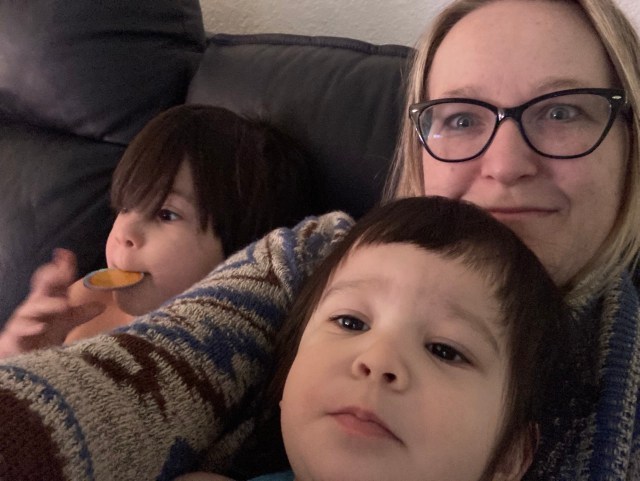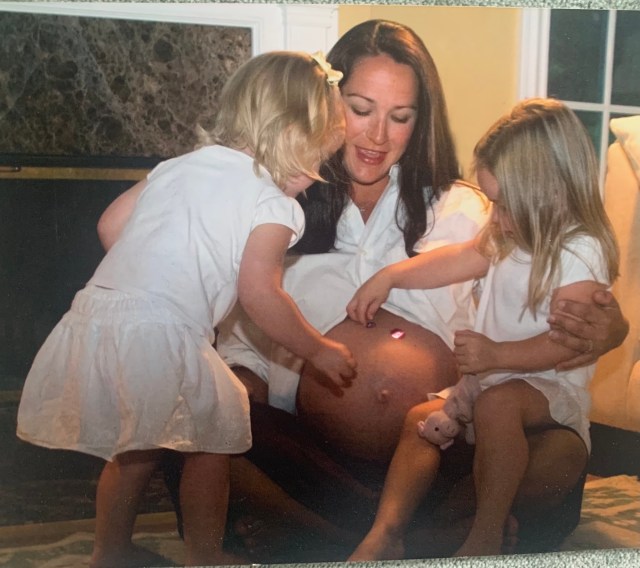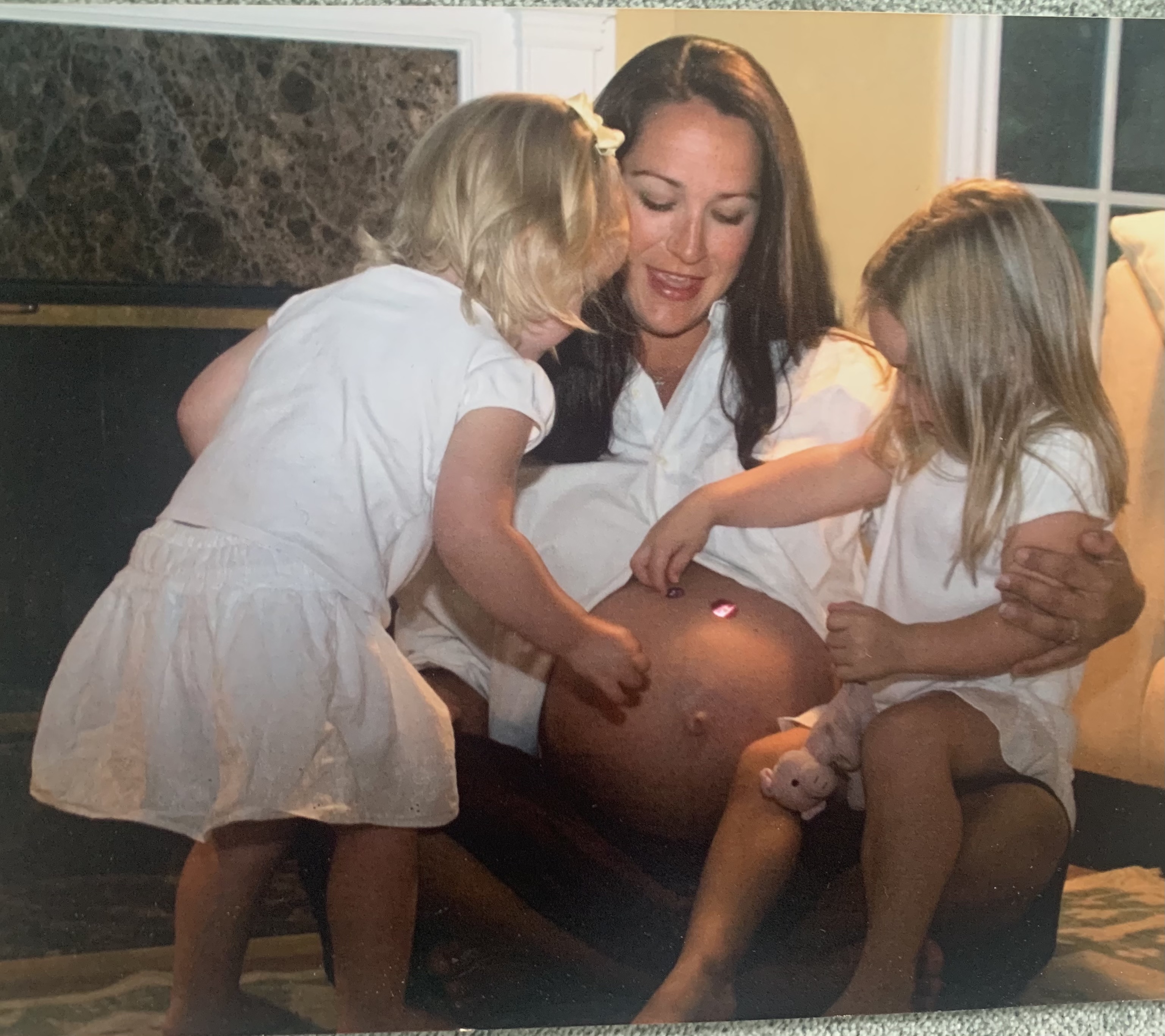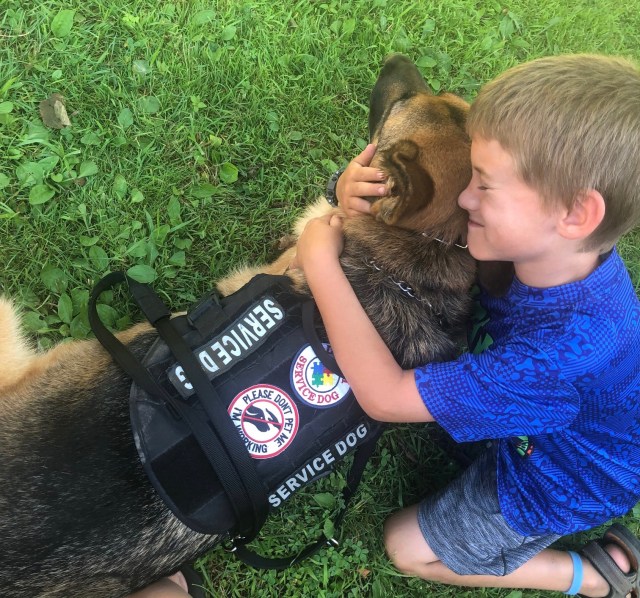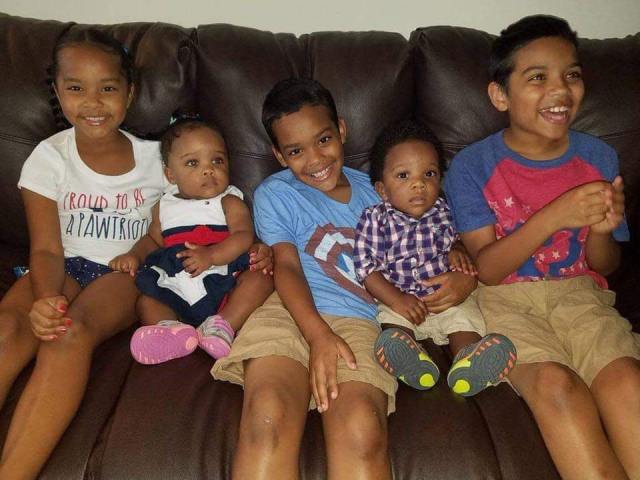Photo: Colleen at Good Bye Anxiety, Hello Joy
As a parent, we often find ourselves thinking of the “what ifs” that could happen. We mentally prepare for possible events that could occur to our children over the course of their life, even before they are born. But the thought that my child may have mental health issues never crossed my mind. I was completely lost when I began learning how to help a child with anxiety.
By preparing yourself for the reality of dealing with anxiety from day one, you set your child, and your family, up for more success. Here are 10 things I wish I would have known about having a child with anxiety.
1. THINK OF MENTAL ILLNESS AS YOU WOULD ANY OTHER ILLNESS
Mental illness is a REAL illness. Your child is sick, although the level of severity will vary greatly from one child to the next. You would not think twice about cost, distance, missing work, etc if your child was diagnosed with cancer, diabetes, autism, etc. Do not think for one minute that mental health is any less important. Mental health has a “weakness” and “not real” attitude attached to it. People will judge and offer advice when they are not aware of the realness of the situation. Grow a thick skin and believe in yourself as the parent.
When your child complains of physical symptoms of anxiety-like an upset stomach, headache, or fatigue, they are truly experiencing those feelings. Children who complain about unrealistic thoughts view these thoughts as real. High quality, research-based anxiety treatment will give you and your child the tools to manage and cope with anxiety.
2. TAKE CARE OF YOURSELF
You should get yourself involved with a counselor as soon as possible to help you handle the life you are now living. I waited way too long for this because I could never justify paying for therapy for myself. I still cannot afford it but my mental health is more important than money (most of the time). Family counseling is also great if you have other children impacted by mental health in the family. Often siblings feel lost and confused with what is happening around them.
You need to find a way to make time for self-care, even when that seems impossible. Scheduling just 10 minutes a day for you gives you the strength and motivation to move forward in caring for your child. Many people add this time of self-care to their schedules along with therapy appointments and after-school activities. This reminds you that you are just as important as your children.
3. HAVE AN OPEN MIND
Do not refuse the idea of medication or therapy without getting educated. Medication can and does offer great relief. On the flip side, do not agree to medication until you do your own research and ask questions. Every child reacts differently to medications, so what works for one child may not work for yours.
Therapy is the most effective treatment option for anxiety. The trick is finding the right type of therapy for your child. Do your research, ask questions, and try a few therapists before making a decision on the right option for your child. Getting help is not a weakness. You are providing what your child needs in order to reduce anxiety.
Think outside the box and be creative when finding ways to treat your child’s anxiety. I have found that self-help books offer a starting point for parenting an anxious child, but seldom fit the needs of my family. Take the knowledge you receive and make it work for you. Do your best not to be embarrassed or compare yourself to others. You must do what works best for your child in treating anxiety.
4. YOUR CAREER MAY SUFFER
Be prepared for your career to suffer. We all know that no parent can do it all or find the right balance. This is especially true for working parents. There are so many appointments and they never happen after work hours. For children who are able to attend school with little difficulty, parents should not be impacted while at work. However, for children with intense anxiety that leads to school refusal, parents will find it very difficult to work.
Getting your anxious child to school each morning can be an intense battle that causes you to be late for work. Additionally, once your child arrives at school, be prepared for the school to reach out to throughout the day because your child’s anxiety is impacting their behaviors. These reasons support the need to find ways to help your child with anxiety early on in the hopes of avoiding these severe reactions to anxiety down the road.
5. TREATMENT IS EXPENSIVE AND DIFFICULT TO FIND
You will go broke unless you are one of the few people who are truly rich, meaning you have thousands of dollars just sitting around. Just like any other medical issue, the cost to see doctors and therapists is outrageous. Treatment programs are often located in hospitals and can last several weeks. In many cases, therapists do not want to deal with insurance, therefore you are left paying out of pocket. From my experience, if you are middle class, there is no monetary help available to cover these costs. Be prepared to deal with the stress of never having enough money.
With that being said, treatment for anxiety is a must if it interferes with daily life. Anxiety spirals quickly, making it essential to get help for your anxious child as soon as possible. Begin searching for a therapist who specializes in child anxiety. If your child is dealing with severe anxiety, reach out to child psychiatrists for more rigorous treatment options such as medication or intense therapy. These professionals have the knowledge and experience of how to help a child with anxiety.
6. GET READY TO FIGHT
Get ready to fight for your child’s rights as they pertain to education. Mental health is a strong reason to get your child on an IEP or a 504 at school. Many schools have the best of intentions in helping kids but are completely lost on how to help kids with mental health disorders. Each kid is so unique in their needs and their needs can change frequently.
Dealing with anxiety at school is a team effort between school staff, parents, therapists, and medical professionals, when necessary. As a parent, you must do your research on the best ways to help a child with anxiety at school. Present these ideas to your child’s school, working together to create a plan with the intention of helping your child manage and cope with anxiety during the school day.
7. SURROUND YOURSELF WITH THE RIGHT PEOPLE
Get a network of support around you of people who will not judge or offer advice (unless requested). It can be difficult to spend time with friends and family who do not understand what you are going through. Similarly, it can be heartbreaking to spend time with other parents of children who are not anxious. You find yourself feeling jealous of the ease at which their child enjoys life.
Find other parents who may be dealing with similar issues. It is amazing the relief you will find in seeing that you are not alone and that other families are struggling with similar situations. Look for support groups in your area. Often these groups meet at local coffee shops or libraries. Also, there are several groups on Facebook dealing with child anxiety. There is mental relief in hearing others talk about situations in which you can relate.
8. PRACTICE GRATITUDE
When life feels like it is spiraling out of control and you have moments of hopelessness, take a few minutes to find something to be grateful for. There were times I honestly thought I had nothing positive in my life but being mindful of small moments helped me notice that small moments of happiness were still around me.
Every child suffering from anxiety has many great qualities, although often hidden by anxiety. Find these qualities and do all that you can to pull them out whenever possible. Celebrate small moments, minor successes, and the incredible effort it takes to overcome anxiety.
9. FIND THE RIGHT THERAPIST FOR YOUR FAMILY
You must find a therapist that you and your child connect with. It takes trial and error, time, and money but in order to see progress, you must feel comfortable opening up to this person and believe in what they say. Each therapist has an area of specialization, such as divorce, trauma, eating disorders, phobias, GAD; find the one that is right for your child.
Different approaches and treatments are also available depending on the therapists. Options are play therapy, family counseling, Cognitive Behavior Therapy (CBT), Exposure Response Training (ERT), and many more.
10. SHARE YOUR STORY
Being open and honest with the world about your family’s story helps educate others about how to help a child with anxiety. It puts a face to daily challenges brought on by anxiety. Never be embarrassed to speak up and reach out. Together we can help end the stigma that anxiety is poor behavior, a weakness, or something to be ashamed of.
I am Colleen, a mother, teacher, and the founder of Good Bye Anxiety, Hello Joy, a site dedicated to parents and teachers supporting a child with anxiety. In addition to advocating for child anxiety, I love the beach, fresh cookies, children's laughter, and new school supplies!








